How Times Square became the nutty and inspiring mega tourist attraction it is today
Times Square gets its name from the old New York Times building, pictured here in a 1921 photo.

It's long been a gathering place. In this 1918 photo, these guys are celebrating the end of World War I.
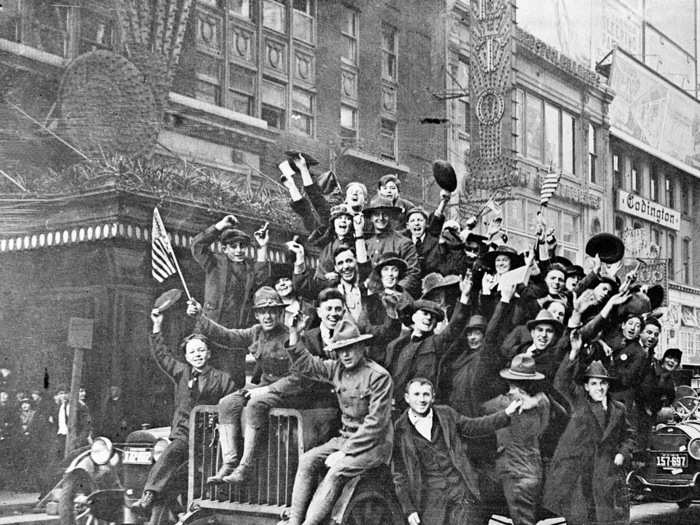
Here's the presidential election night in 1928. Herbert Hoover won the day.
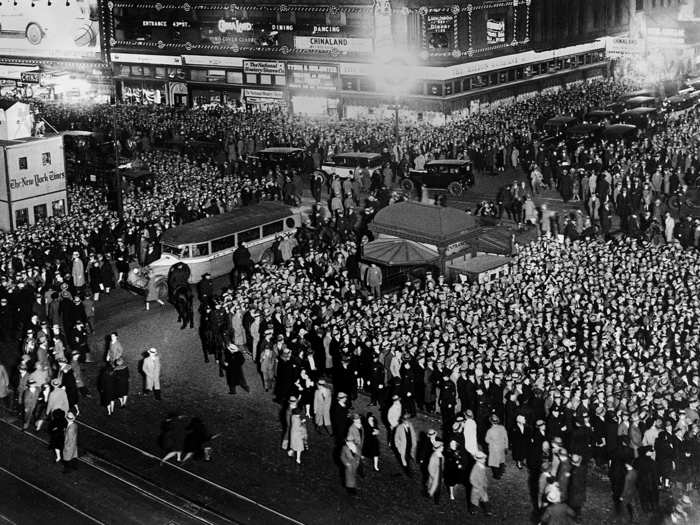
1938 was a big New Year's Eve.
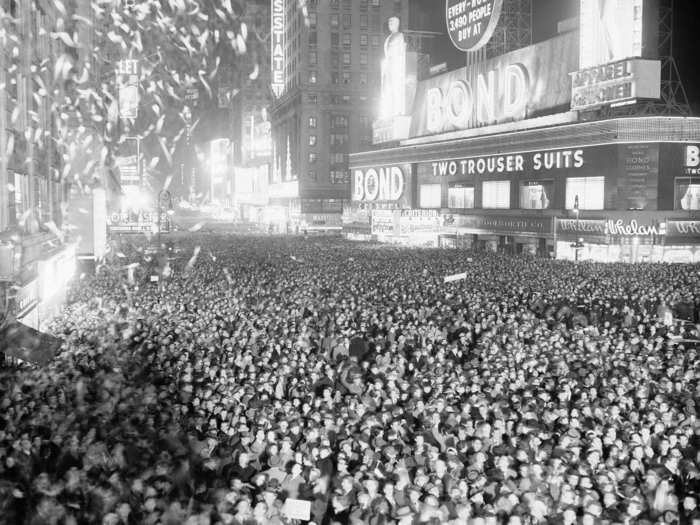
There were giant bread lines during the Great Depression.
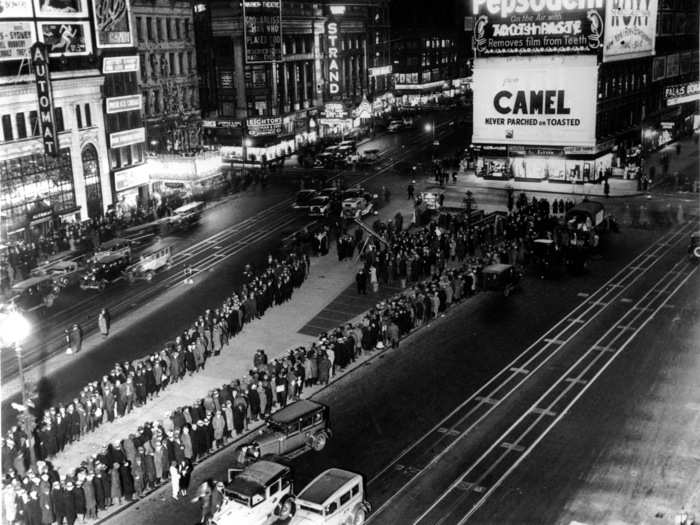
It's the heart of the city, as this 1921 photo shows.
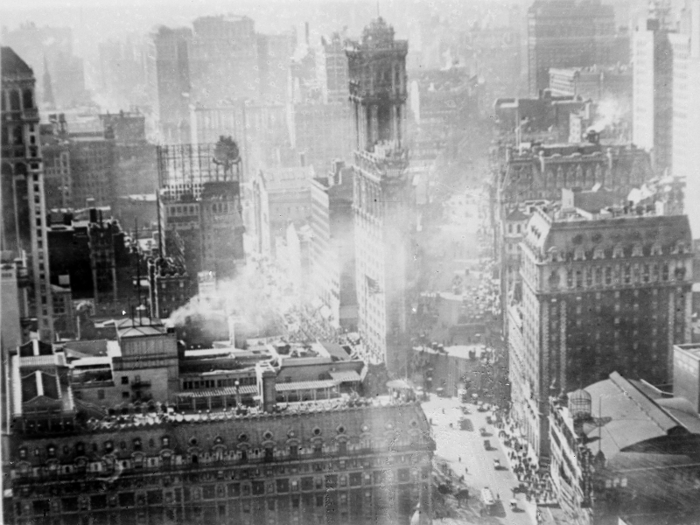
By the 1930s, Times Square was New York's entertainment capital. It featured pinball...
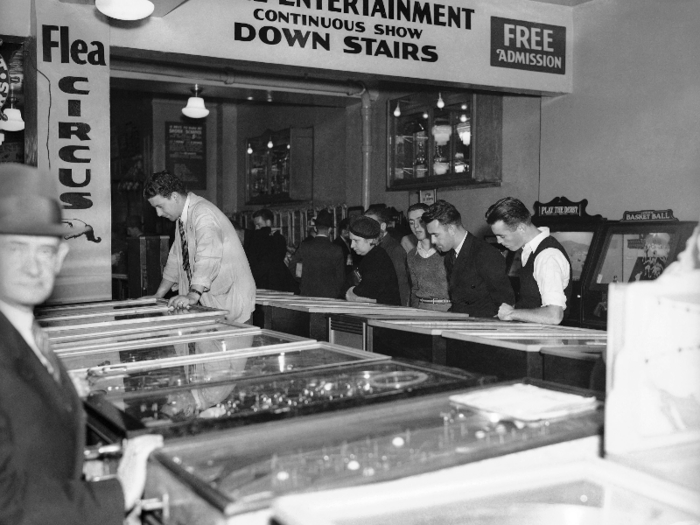
And photo booths.
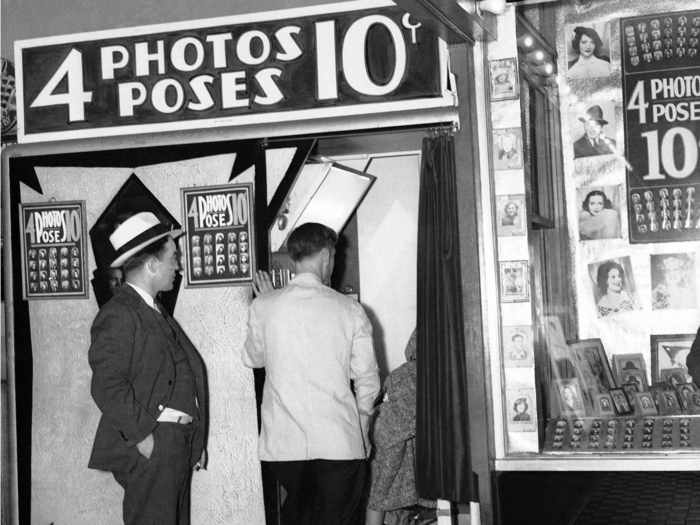
The Times' building 'news zipper' gave breaking news. In this 1938 photos, picketers protest German aggression in what would become World War II.
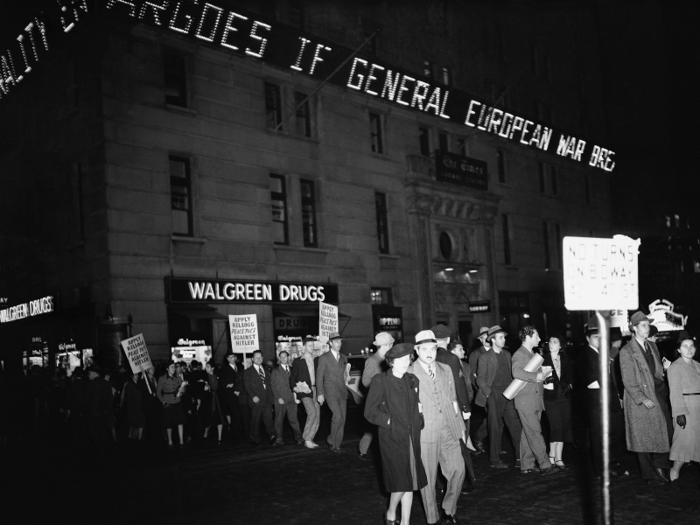
It's where people came to learn about Pearl Harbor in 1941.
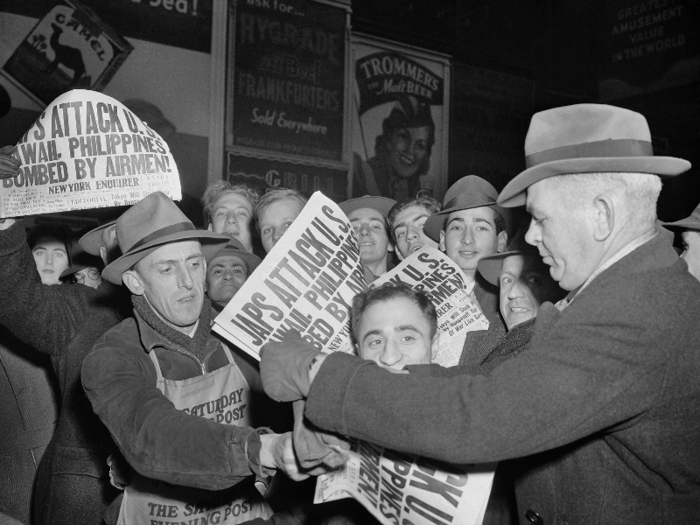
By 1942, Times Square had acquired its signature glow.
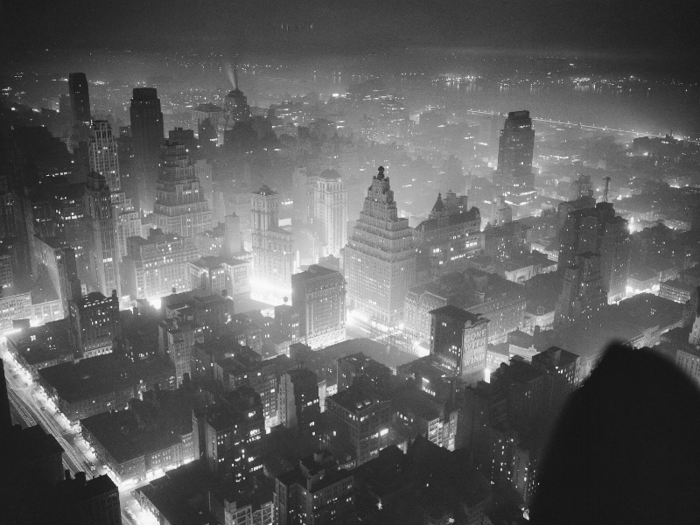
Thousands turned out to celebrate Germany's surrender.
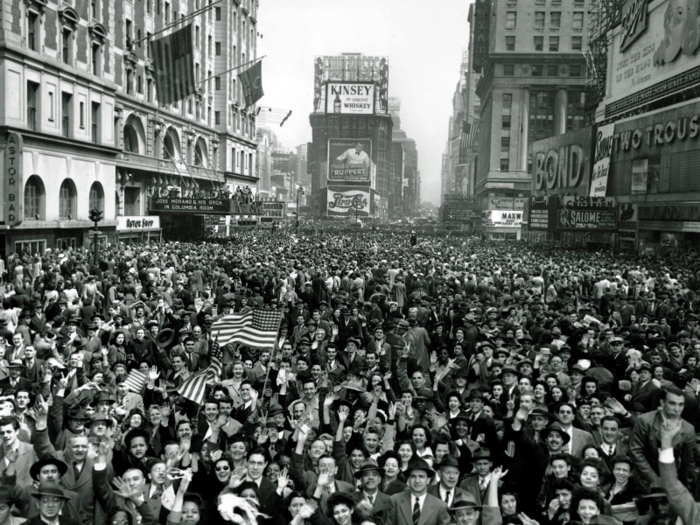
And one of the 20th century's most iconic photos was taken in Times Square after the surrender of Japan.
In the 1950s, the NYPD started cracking down on "undesirables" hanging around Times Square. The AP reports that 90 "hoodlums and juveniles" were busted in this 1954 raid.
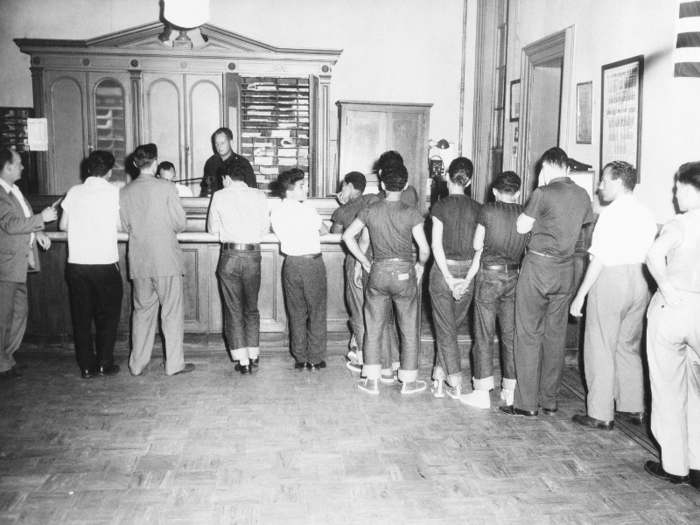
In the 1950s, Times Square was fully lit up. Here a Broadway Maintenance Corporation foreman replaced a burnt out light.
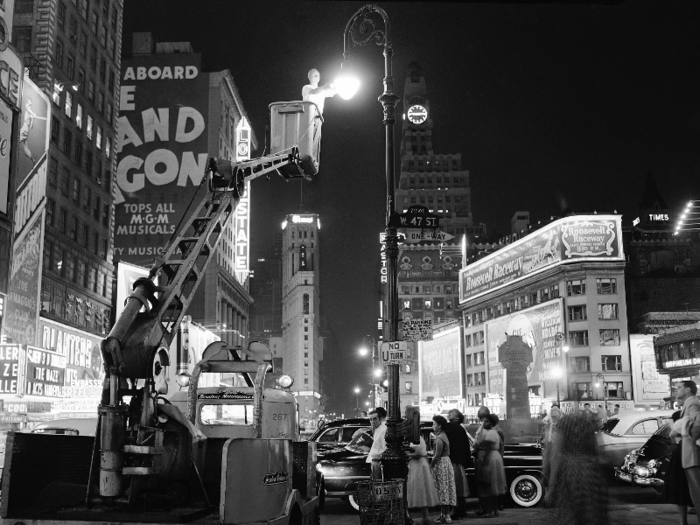
It still had lots of grit in 1969.
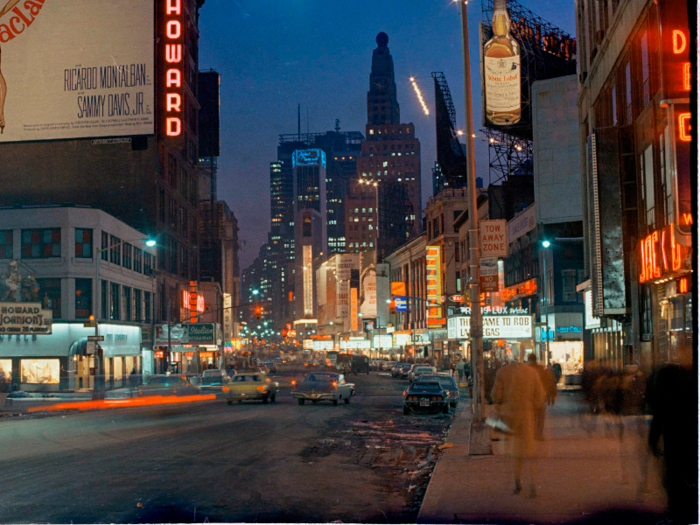
Even in 1970 the subway station was a mess.
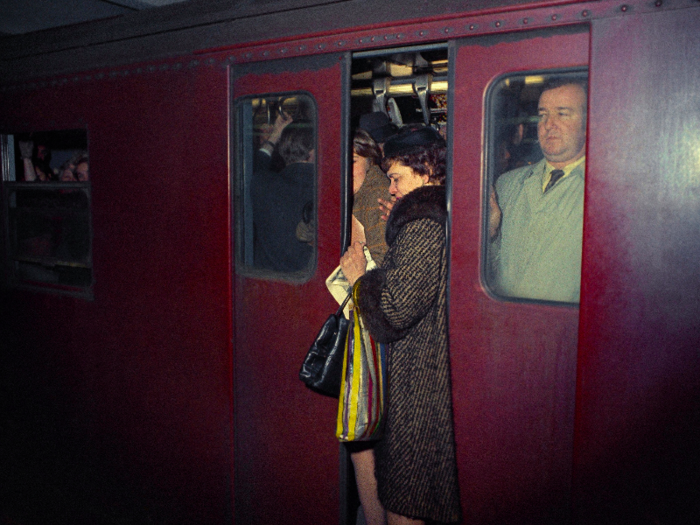
Times Square is a place of proclaiming victory — like Muhammad Ali."I'm the onliest man in the world who can stop traffic in New York City" he said while promoting a film about his life at the Criterion Theatre in Times Square.
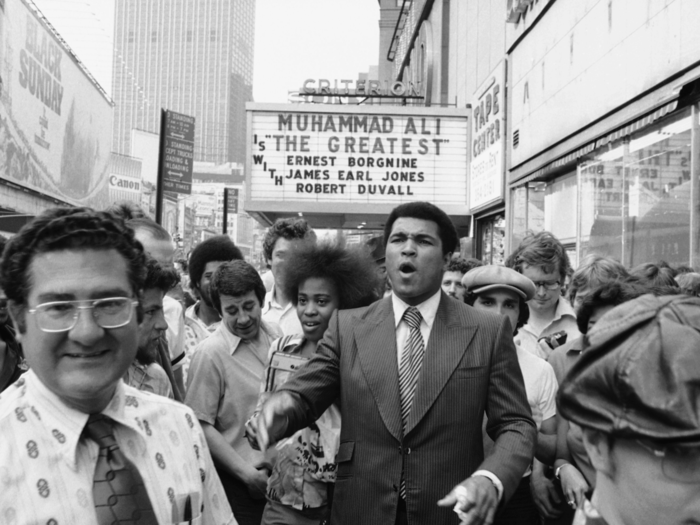
In the 1970s Times Square was loaded with pornography.
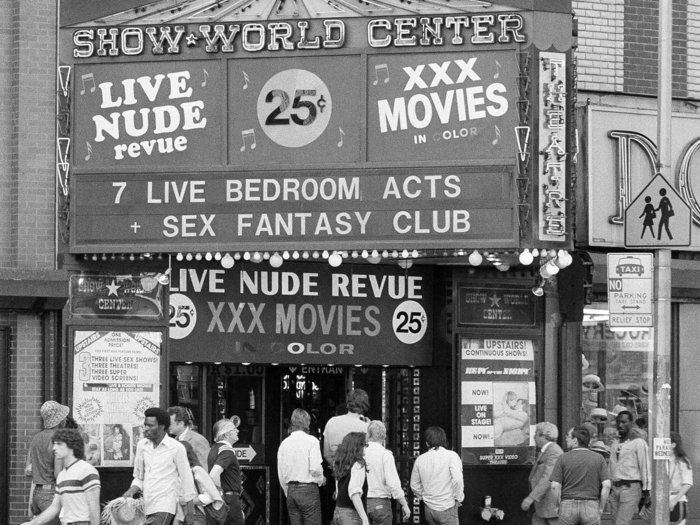
In the 1980s, New York was Wall Street's town, and you can practically see the finance oozing out of the place, even in Midtown.
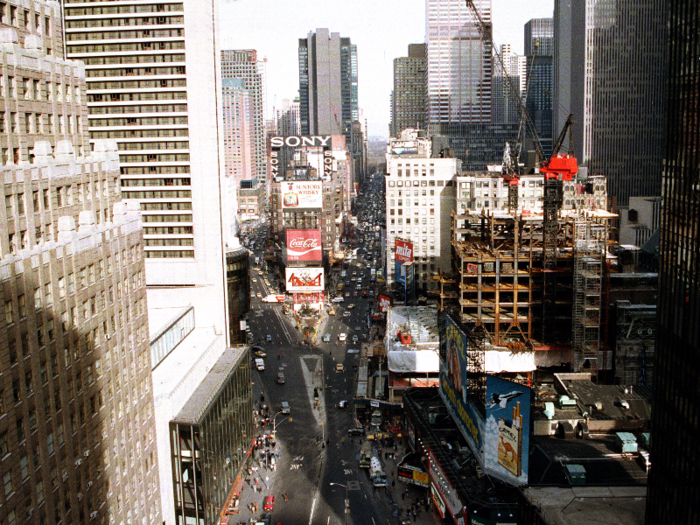
The 1990s were a time of huge change for the Intersection of the World.
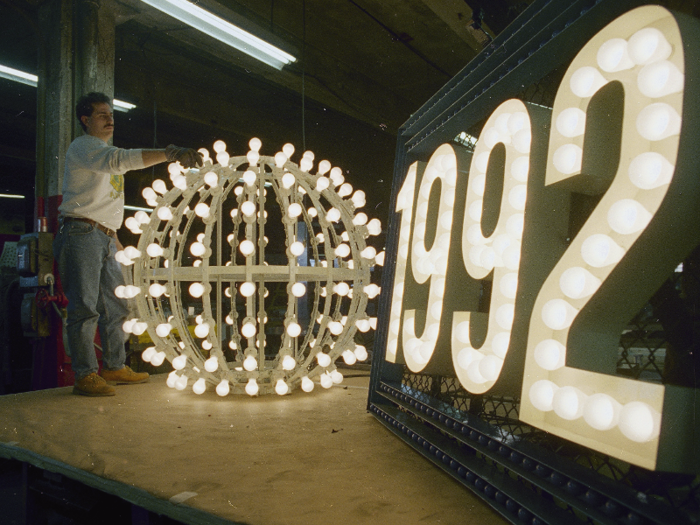
In 1995, Mayor Rudy Giuliani announced the Times Square redevelopment project, which lured Disney (and lots of investment) into Times Square. The plan was to make Times Square family friendly.
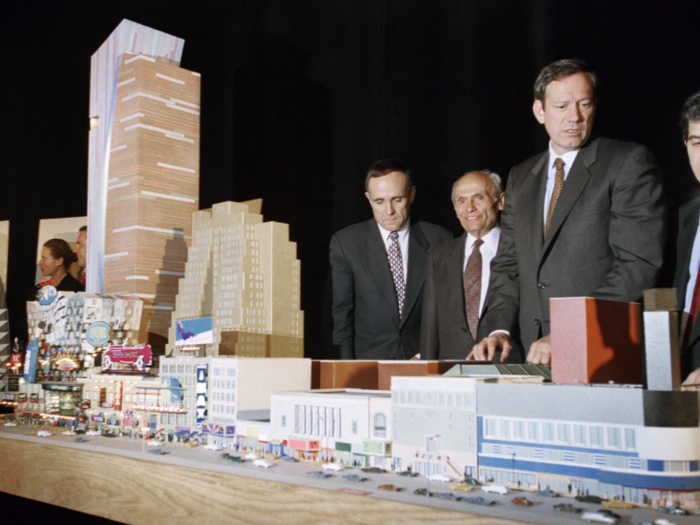
The 1995 deal brought a $34 million Disney store to Times Square and millions more in additional development.
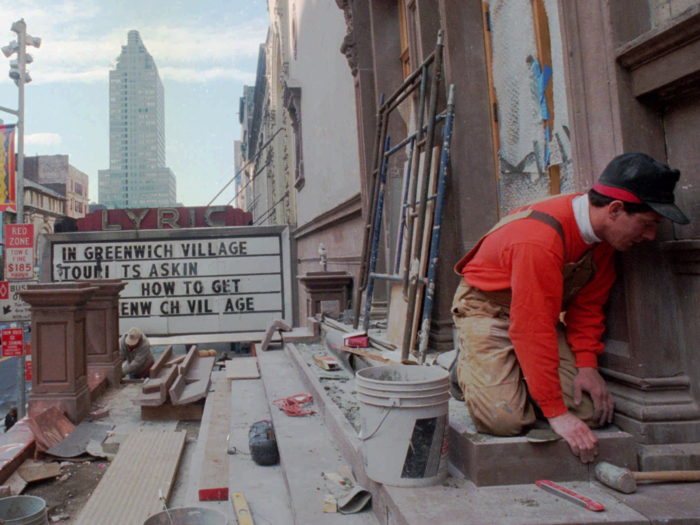
And Times Square quickly became less about porn, more about mice.
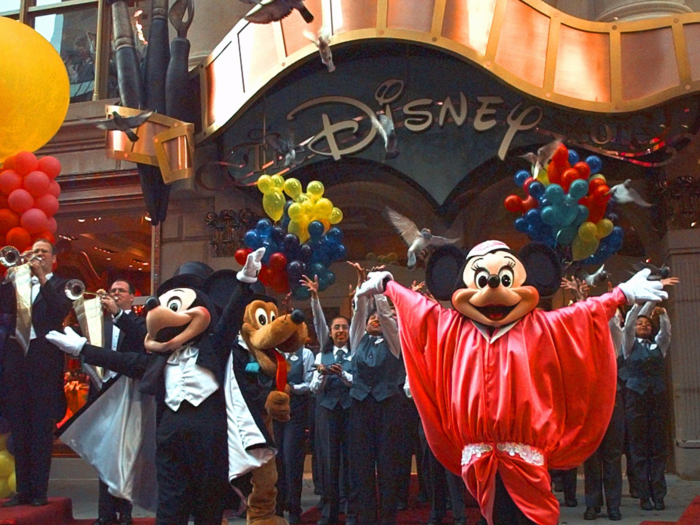
In 1998, a judge concluded that the city had the right to force sex shops to relocate, which they promptly did.
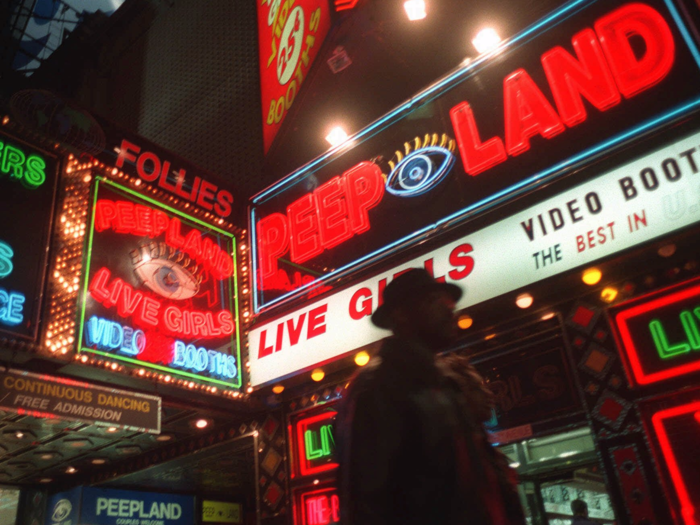
The year 2000 was rung in with high levels of insanity.
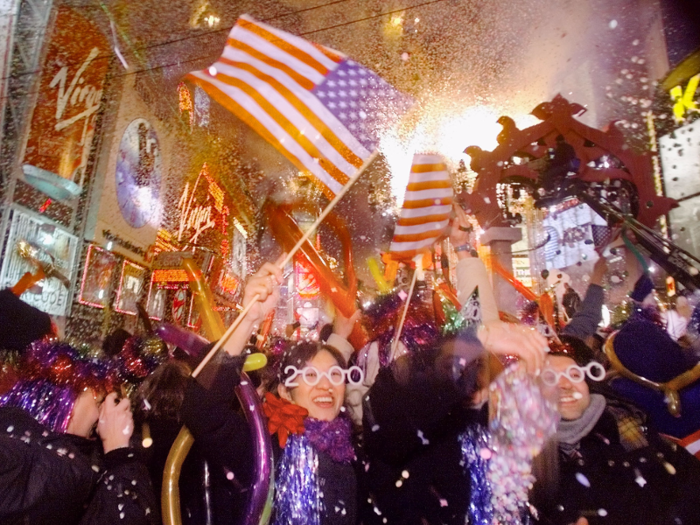
Like the rest of the city, Times Square lost much of its bustle — and showed its kindness after the 9/11 terrorist attacks.
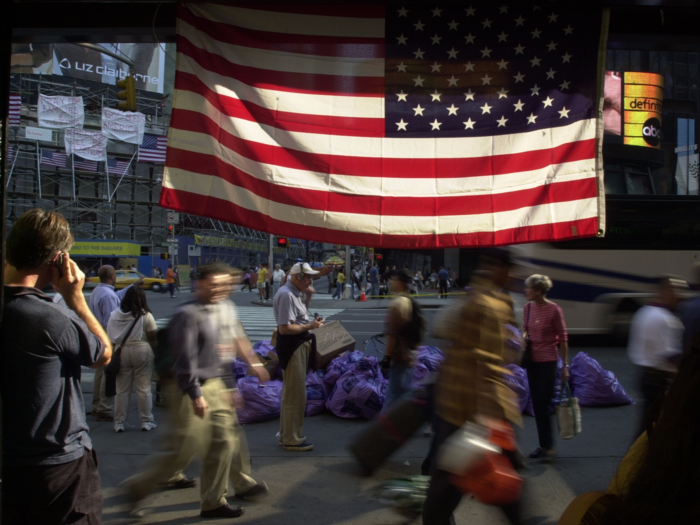
Robert Burck, better known as "The Naked Cowboy," started busking in Times Square in 1998. By this 2002 photo, he had become a tourist fixture.
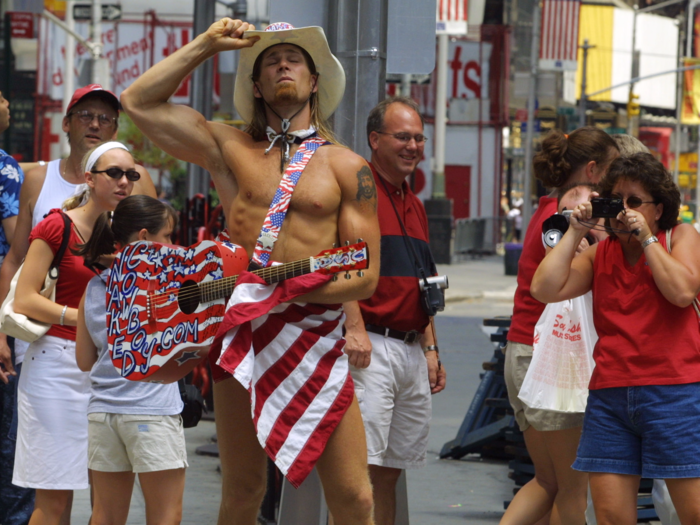
In 2003, MTV was still highly relevant, and artists like Jay-Z would perform at the network's Times Square studios.
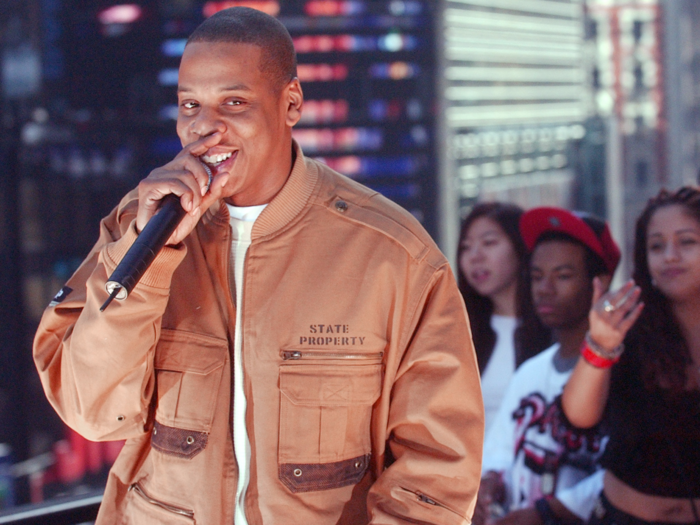
In the mid 2000s, marketing ridiculousness really found its form in Times Square. Like in the case of the "2nd Annual Running of the Bridezillas," a promotion for the "Bridezillas" reality show.
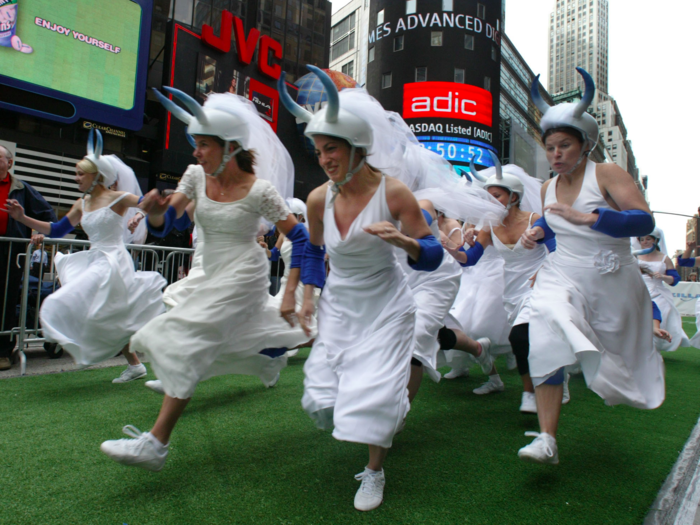
Magician David Blaine has made Times Square something of a stomping grounds for his death-defying (or at least sense-defying) acts. In 2006 he hung from a gyroscope for two days to benefit Salvation Army.
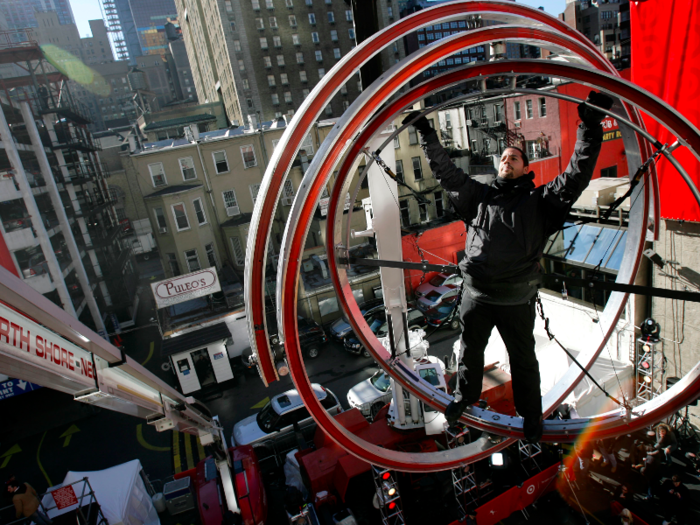
In 2012 Hurricane Sandy came to New York, and visitors — at least before the storm — approached it with levity.
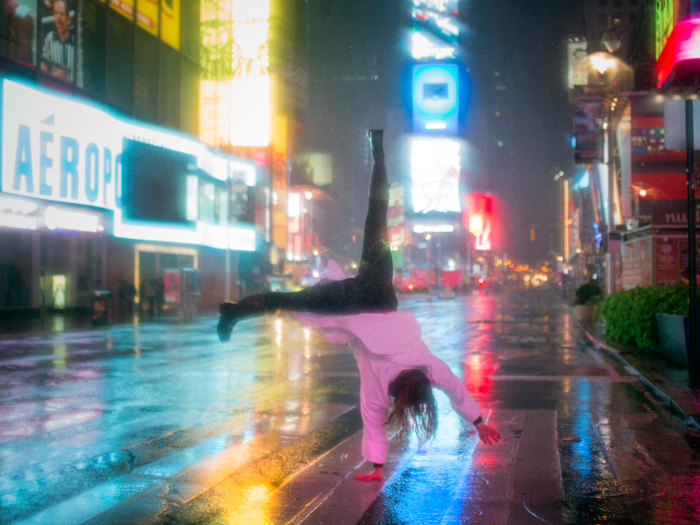
Over the past few years, increasing amount of buskers and street performers have started crowding into Times Square. These Big Birds and Spider-Mans ask you if you want to take a picture with them — then demand payment.
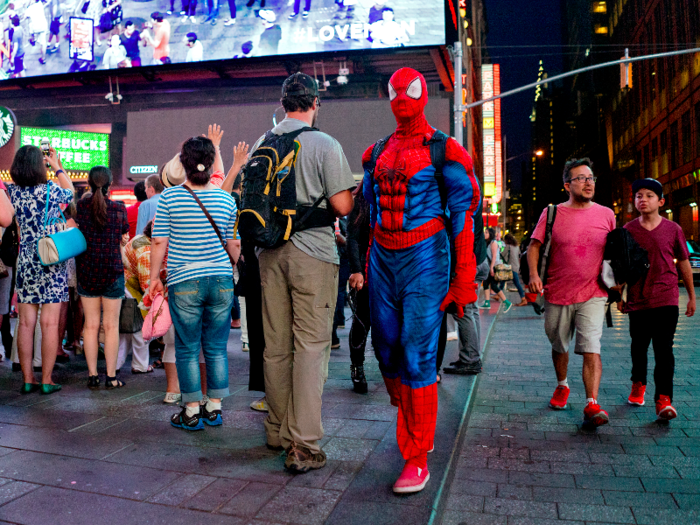
Most controversially, the partial nudity of the Naked Cowboy has now been matched by nearly naked women, also eager to make a buck taking photos with tourists.
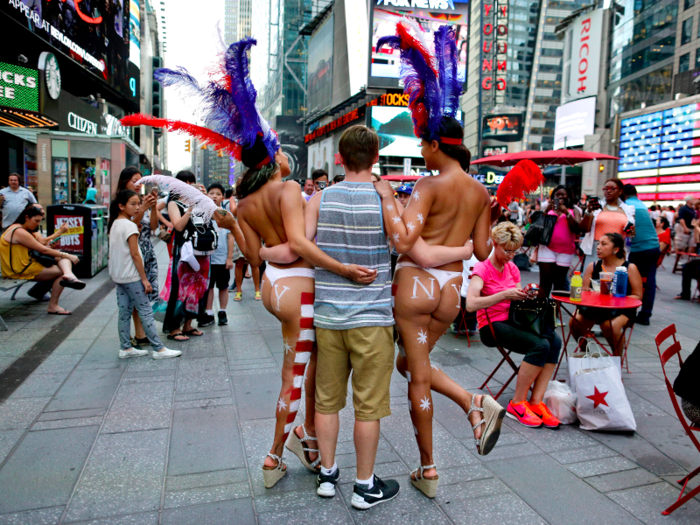
Activists said that public nudity was a gender issue. If the Cowboy could be Naked, so could a Cowgirl.
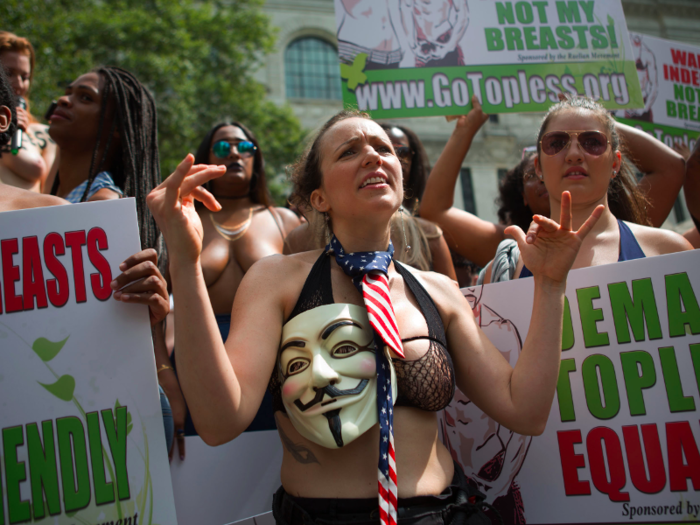
The controversy is timelessly Times Square: tourism, sex, and money-making, all at the Intersection of the World.
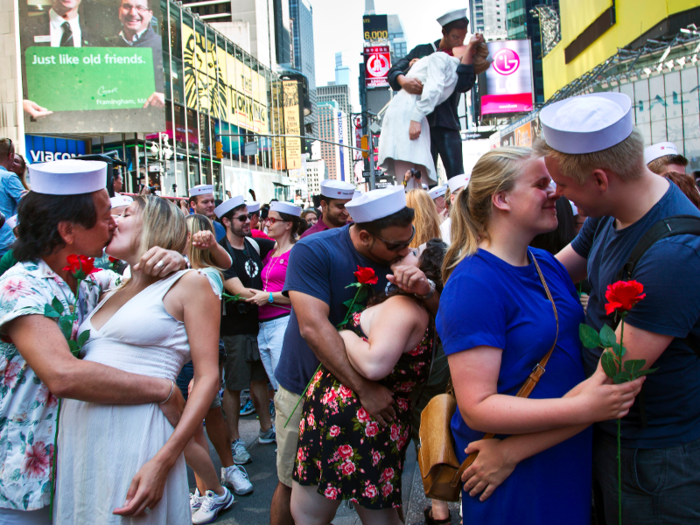
Popular Right Now
Popular Keywords
Advertisement